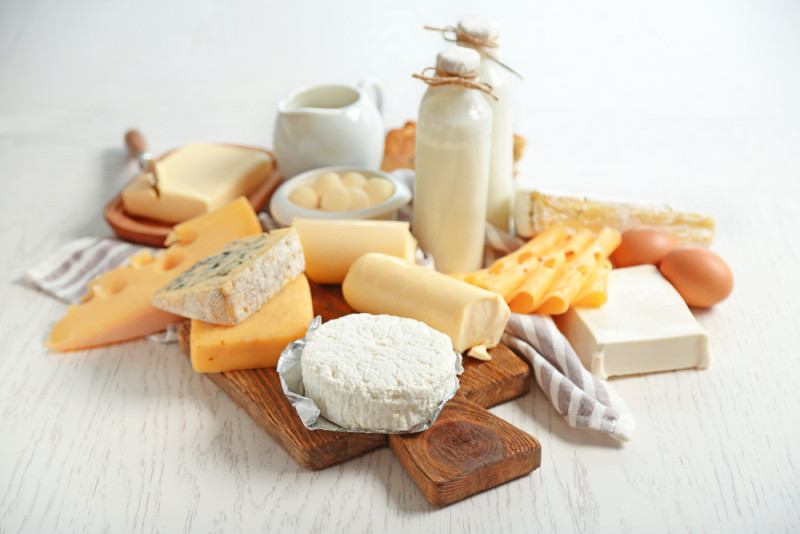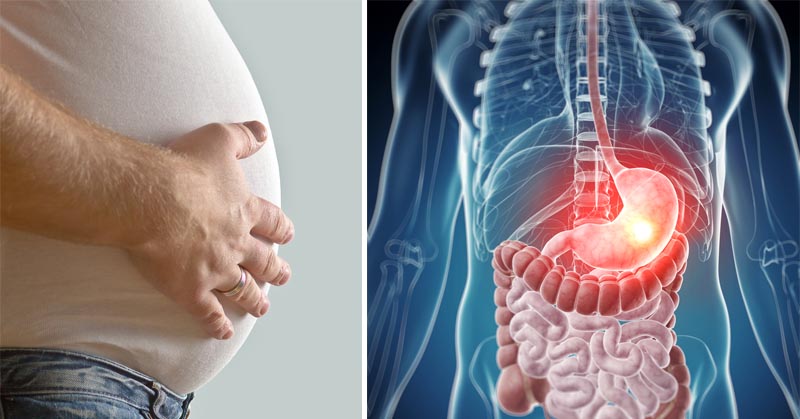We’ve all heard it, said it and felt it: “I feel bloated.” Feeling bloated is the worst, isn’t it? It can make finding something to wear more difficult, lower your self-esteem and make you feel uncomfortable throughout the day. Bloating can happen for a number of reasons, but the good news is that most of the time, it’s preventable. Check out these common conditions that cause bloating, and see if you can get to the root of the problem.
1. Intestinal Yeast Overgrowth
The healthy bacteria in your gut usually keeps your yeast levels in check, but there are a few factors that can cause the candida population to grow out of control, causing an overgrowth. They include:
- Eating a diet high in refined carbohydrates and sugar
- Consuming a lot of alcohol
- Living a high-stress lifestyle
- Taking antibiotics that have killed too many friendly bacteria
When there is too much yeast in the body, it causes you to become bloated and gassy. By eating a no-sugar diet, taking supplements to kill yeast and replenishing your intestinal flora with probiotics, you can re-balance your body.
2. Food Intolerance
A food intolerance is different from a food allergy. It’s a delayed reaction to food, rather than an immediate allergic response. A food intolerance causes immune system stress and inflammation, which can irritate the intestinal tract and cause bloating. The most common food intolerances are dairy, certain fruits, nuts, wheat, gluten and corn. Try playing with your diet, removing certain foods for a few days to see if bloating reduces. You can also find food intolerances through a blood test.
3. Gluten Sensitivity
Gluten intolerance and celiac disease have become more common, largely due to the chances in wheat over the past few decades. Many people with these conditions report bloating, often accompanied by gassiness, constipation and diarrhea. There is testing available for gluten intolerance and celiac disease, or you could cut gluten out of your diet for a four-week test run. Alternatives to gluten include rice, quinoa, millet, squash and sweet potato.
4. Irregular Meal Times
Bloating can be caused by eating at irregular meal times. When you go hours without eating or have large amounts of food before bed, your digestion and metabolism will both suffer. Skipping breakfast then eating a large lunch will almost always cause bloating. It shocks your digestive system, causes a rise in blood sugar, and can leave you feeling tired and bloated. Aim for regular meal times. If you’re constantly on the go, pack a lunch or keep a few snacks in your bag so you don’t go too long without eating.
5. Insulin Resistance
Insulin levels spike after eating a meal. Insulin is the hormone that is released from the pancreas in response to glucose (sugar) in the blood. When insulin is released in a healthy person, it triggers the body’s cells to use glucose and fats from the bloodstream. Insulin resistance occurs when the cells don’t respond to the signal, resulting in the body secreting even more insulin and creating toxic levels of glucose in the blood.
Symptoms of insulin resistance include weight gain, intense cravings for carbohydrates and sweets, increased appetite and feeling tired and bloated after eating. Blood tests can confirm insulin resistance, and this condition is treatable with diet changes and exercise. Lowering your intake of sugar and carbohydrates, and putting an emphasis on vegetables, proteins, fiber and healthy fats can help you manage insulin resistance.
6. Poor Food Combining
Eating certain types of foods together can actually affect how well they’re digested. Some are more sensitive to food combining than others, but when foods are poorly combined, it can slow down the digestive system, resulting in bloating and indigestion. Those who adhere to food combining always eat their fruits alone, especially making sure not to combine them with proteins. Other rules of food combining are to never combine proteins with carbohydrates, which is difficult for a vegetarian. If you’re a meat-eater, try separating your starches and proteins and see if you feel a difference.
Candida can also cause bloating. Check out the awesome recipe below that fights candida fast!
Sources:
MindBodyGreen
Detoxinista
NIH
Celiac.org
MedicalNewsToday
SydneyMorningHerald


